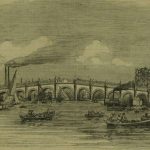This week at The Archive has been an especially busy one, as we have added 150,624 brand new pages from titles to be found across the world! Not only have these 150,624 new pages joined us this week, we have added nearly 150 years’ worth of headlines, from 1771 to 1920.
Furthermore, this week sees the continuation of our commitment to publish the international titles held by the British Library. To this end, new titles join our collection from the Caribbean, including Barbados, Jamaica and Saint Kitts and Nevis. We have also added our first title from New Zealand this week, just in time to celebrate Waitangi Day (New Zealand’s national day).
These titles combine to tell together the story of the British Commonwealth, the often stark and confronting legacy of the British Empire, and the harsh realities of British colonial rule.
We have also been busy adding new pages to our existing titles, with a Lancashire lean this week. So read on to discover what new titles and pages we have added, and also to find out about a first for women’s rights which took place in New Zealand in 1893.
Register now and explore the Archive
Our first new title of the week is the Lyttelton Times, one of New Zealand’s most historic newspapers. The first newspaper to be published in the region of Canterbury, its first issue appeared on 11 January 1851, its history inextricably linked with the colonization of the Canterbury area.
Printing equipment for the Lyttelton Times arrived in New Zealand on 16 December 1850, having been conveyed on the Charlotte Jane. The Charlotte Jane was one of four ships, known as the ‘First Four Ships’ (including the Randolph, Cressy and Sir George Seymour), which had been chartered by the Canterbury Association and left Plymouth in September 1850 to transport an estimated 790 passengers to New Zealand, in order to form a new colony there.
Lyttelton Times | 18 January 1851
These passengers included men and their families who had paid for plots of land, as well as emigrants seeking work, with farmers and labourers amongst them. The new arrivals would be served by their new newspaper, which was edited by James FitzGerald, who initially agreed to work for free.
Starting out as a weekly publication, in 1854 the Lyttelton Times became bi-weekly, before it started to appear three times a week in 1863. In 1864 the Lyttelton Times moved to Christchurch, becoming a daily newspaper. By this time it was already known as an ‘old-established Newspaper, occupying a high position among Colonial Journals, and circulating extensively in New Zealand.’
Lyttelton Times | 12 January 1910
Priced at 3d., the Lyttelton Times had the reputation of being a ‘political brigand,’ with liberal and sometimes radical leanings. Its influence over the years helped to create a fast mail service between New Zealand and England, and on 1 August 1929 it changed its name finally to the Christchurch Times. But increased competition in the early 1930s, with two other morning and evening papers in Christchurch, meant that its final edition appeared on 29 June 1935, although it was, at that time, New Zealand’s oldest newspaper.
We move now to look at our new titles from the Caribbean. These newspapers chart the changing face of the Caribbean, from the inhumanity of slavery, to post-emancipation life.
First up is Budget (Jamaica), which was published in the Jamaican capital, Kingston. A tri-weekly publication, it contained all the latest news from the island, with a particular emphasis on shipping intelligence, charting all the arrivals and departures, as well as listing ships to charter. It showcased a wealth of different advertisements, including what was on at the Theatre Royal, as well as containing news from further afield, featuring a section entitled ‘War Notes.’
Budget (Jamaica) | 14 June 1877
Another new Jamaican title joining us this week is the Morning Journal (Kingston). Like the Budget, it was also published in Kingston. First published on 31 October 1838, it first reflects on ‘The most important event in the annals of Colonial history,’ which took place some four years before, on 1 August 1834. This was Emancipation Day, when the Abolition of Slavery Act finally came into force, freeing the enslaved people of the British Empire. The 1st August is now a holiday in Jamaica, like in other Caribbean countries, and marks the beginning of a week of cultural celebrations.
Morning Journal (Kingston) | 19 February 1864
The Morning Journal (Kingston) was full of local news, including shipping arrivals and departures, auctions, church and court news, as well as international news.
We move now to Saint Kitts and Nevis, a dual island nation which sits between the Atlantic Ocean and the Caribbean Sea. We have three new titles for Saint Kitts, so let’s begin with the earliest one. This is the St. Christopher’s Gazette, and it was published as early as 1771 in Basseterre.
Although Saint Kitts had been heavily fought over by the British and the French, it was a locus of sugar-cane production, which saw the introduction of enslaved Africans to the country from 1640 onwards. Consequently, the St. Christopher’s Gazette is a sobering chronicle of slavery, editions from 1771 featuring advertisements for enslaved people, which are highly disturbing and illustrative of how these enslaved people, men, women and children, were regarded as objects purely for trade and for work.
St. Christopher Gazette | 16 February 1771
Originally known as the St. Christopher Gazette, or, The Historical Chronicle, the newspaper changed its name to the St. Christopher Gazette, and Caribbean Chronicle, providing news from across the Caribbean. Containing news of the latest bankrupts and quarter sessions, correspondence and informative pieces like an account of the life of the ‘young Napoleon,’ it also featured a ‘Foreign Intelligence’ section.
We now move onto the Saint Christopher Advertiser and Weekly Intelligencer. First published in either 1782 or 1783, just as Saint Kitts became affiliated with the British Empire, this weekly Basseterre-based publication ran until approximately 1908. The Saint Christopher Advertiser is particularly notable amongst its contemporaries as it was run by a Black family, the Cables, a rarity at the time.
St. Christopher Advertiser | 9 January 1900
Samuel Cable edited the newspaper between 1829 and 1839, when he died aged 43. Samuel Cable was known as being active in promoting the rights of the so-called ‘freed’ Black population. So much so that he was sued and imprisoned for contempt in 1835, spending three months in goal until the Governor of Saint Kitts finally intervened to free him. Under the editorship of Cable, the Saint Christopher Advertiser grew a much larger audience that is rival the St. Christopher’s Gazette, featuring telegrams received from across the world, news from Britain and the House of Commons, a poet’s corner, as well as all the latest departures and arrivals at Saint Kitts.
The third of our trio of Kittian newspapers is the St. Kitts Daily Express. First published on 30 September 1884, it promised to be ‘A Periodical for the Homes of the People.’ Filling just a single sheet, it was priced at one penny and featured telegrams from abroad, correspondence, news on markets, as well as advertisements. Running with a line from John Milton – ‘Give me the liberty to know, to utter, and to argue freely’ – it was published every afternoon at the Office, Fort Street, Basseterre, by Richard Cable – a relative, perhaps, of the pioneering Samuel Cable?
St. Kitts Daily Express | 13 March 1886
Our final title from the Caribbean this week is the Barbados Agricultural Reporter. First published in the Barbadian capital Bridgetown on 15 January 1845 at the cost of 25 cents, this newspaper was known as the Barbados Agricultural Reporter and Planter’s Scientific Journal, running with the bi-line ‘Science with Practice.’
Its first edition lays out its mission in the newspaper publishing world:
It being generally admitted that such a medium of communication as we now offer, has long been wanted, and has become, from the altered relations of society, more desirable than ever; it is our reasonable hope that such encouragement will be given to this undertaking, as shall not merely afford adequate remuneration for the toil and expense of it with a character of usefulness, which shall render it an acquisition to the public in general, no less to the Planter.
Barbados Agricultural Reporter | 10 September 1845
Here, the ‘altered relations of society’ refers to the Emancipation of the enslaved people, who had previously worked the plantations for their enslavers. The enslavers needed to change how they worked, now they did not have captives working for them. The Barbados Agricultural Reporter, therefore, was here to fulfil that need, featuring ‘succinct descriptions of new agricultural machines…details of experiments with soils and planting…[and] experiments in the manner of sugar and rum.’
Thus, the Barbados Agricultural Reporter provides a vital commentary on the changing face of the Caribbean, over a decade after the Emancipation.
Rounding off our new titles this week is one that hails from the less tropical environs of the Caribbean – Barnsley. The wonderfully named Barnsley Telephone appeared every Friday priced at one penny, full of marvelous illustrations and photographs, especially of local landmarks. Containing sections devoted to church news and one entitled ‘Topics of the Hour,’ it also featured short stories like A Judge of Horseflesh by May Wynne.
Barnsley Telephone | 16 January 1920
Meanwhile, we have been busy updating our existing titles – with five updated from the county of Lancashire, including the substantial run of years we have added to the Liverpool Daily Post. We’ve also added new pages to Worcestershire title the Cradley Heath & Stourbridge Advertiser, as well as the Evening News (London).
A World First – Women Get the Vote in New Zealand
To celebrate our first ever New Zealand title on The Archive, we thought we’d celebrate an important world first which the country brought about in 1893. On 19 September 1893 New Zealand became the world’s first self-governing country to give all women the vote, and women had the opportunity to vote for the very first time not long after, on the 28 November 1893.
But how did New Zealand newspaper the Lyttelton Times report on this momentous news? It reports from Wellington on 11 September 1893 how ‘All the newspapers here are jubilant over the triumphant passage of the Electoral Bill through both branches of the Legislature.’ It goes on to praise the fight for the enfranchisement of women in New Zealand, which had been enacted by many players:
Women’s right to vote has had to be fought for inch by inch; and the tact, determination, courage, resourcefulness and persistence which lead to victory in a prolonged war, have been displayed in the campaign to an extent which, if exhibited by the officers and men of an army, would have won the applause of nations.
Indeed, the enfranchisement of women appeared to be a great source of national pride in New Zealand, the Lyttelton Times relating how:
It is now certain, in fact, that New Zealand is going to be the first country in the world to admit women to the privilege of the electoral franchise, the first country in which the emancipation of woman has been, we ought to say affected on a scale of complete equality of franchise.
A day after the vote was signed into law by the Governor, Lord Glasgow, the Lyttelton Times spoke with Mrs Shepphard, who was Superintendent of the Franchise Department of the Women’s Christian Temperance Union. She commented how it ‘seems strange to be able to lay aside one’s arms,’ and spoke of her intention of sending instructive literature about votes for women ‘to Tasmania, or somewhere else where women are still fighting for the suffrage, for it is no longer wanted here.’
‘Lady Voters Going To the Poll at Devonport, near Auckland’ | Graphic | 27 January 1894
New Zealand’s fight for the equality of women’s suffrage had lasted for some fourteen years, but for their sisters around the world the fight would last longer, and in many cases, much, much longer.
And how did the rest of the world see this huge step in the fight for equality? The Lyttelton Times contains this extract from the New York Sun:
Nothing very terrible happened, and everything passed off much the same as in the days when men alone were permitted to enter the polls. It is said the greatest activity and interest have been exercised in placing the names of the enfranchised women on the roll, and their attendance at the polling places in order to vote for the candidate of their choice was the cause of great excitement and very considerable enthusiasm.
Indeed, the American newspaper captures all the effervescent joy which appeared to surround the granting of votes for women in New Zealand. And as a bonus – ‘nothing very terrible happened‘ – showing that although the status quo had changed, it had not changed very much, and far from being disruptive, the granting of votes for women was just a necessary extension of the norm, not something to be feared, but to be celebrated.
New Titles
Title | Year Range |
| Lyttelton Times | 1851-1853, 1864-1865, 1871-1877, 1879-1894, 1897 |
| Barnsley Telephone | 1920 |
| Budget (Jamaica) | 1877-1878, 1881-1883, 1886, 1888 |
| Morning Journal (Kingston) | 1838-1840, 1858, 1864-1875 |
| St. Christopher Gazette | 1771, 1837, 1839-1840, 1848, 1871-1888, 1908-1909 |
| St. Kitts Daily Express | 1884, 1886 |
| Barbados Agricultural Reporter | 1845, 1870-1886 |
| Saint Christopher Advertiser and Weekly Intelligencer | 1839-1840, 1855, 1869-1888, 1897-1909 |
Updated Titles
This week we have updated seven of our existing titles.
You can learn more about each of the titles we add to every week by clicking on their names. On each paper’s title page, you can read a FREE sample issue, learn more about our current holdings, and our plans for digitisation.
Title | Year Range |
| Cradley Heath & Stourbridge Observer | 1882-1888 |
| Denton and Haughton Examiner | 1880, 1882-1885, 1887-1889 |
| Liverpool Daily Post | 1888, 1894, 1897, 1899-1900, 1907-1909 |
| Haslingden Gazette | 1901-1909, 1912, 1914 |
| Liverpool Weekly Courier | 1882 |
| Lancaster Standard and County Advertiser | 1908-1909 |
| Evening News (London) | 1893 |
You can keep up to date with all the latest additions by visiting the recently added page. You can even look ahead to see what we’re going to add tomorrow.
















